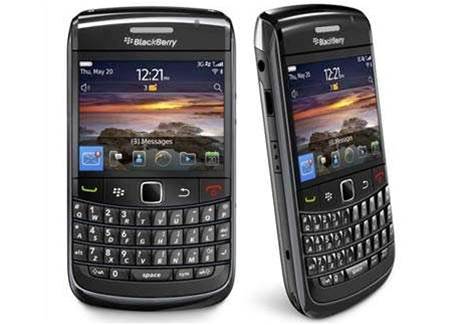Research in Motion has refuted a new round of Indian media reports claiming that the BlackBerry maker has granted the government the encryption keys to its secure corporate email and messaging services.

India is one of the Canadian smartphone maker's few growing markets, where it is expanding aggressively, despite growing adoption of competing iPhone and Android devices elsewhere.
For years, RIM has been grappling with the Indian Government over the Government's demand for the ability to monitor encrypted email and messages between BlackBerry handsets.
The Economic Times this week reported that RIM had provided the government a solution that gave it access to corporate emails, citing a telecom department official and certain documents.
RIM categorically denied this claim in a statement. It has more than once refuted similar claims in India over the last two years.
RIM reiterated that it could not provide access to its enterprise email and messaging services as it did not possess the requisite encryption keys, which remained in the control of its corporate clients.
"RIM is providing an appropriate lawful access solution that enables India's telecom operators to be legally compliant with respect to their BlackBerry consumer traffic, to the same degree as other smartphone providers in India," it stated.
"But this does not extend to secure BlackBerry enterprise communications."
RIM gave India access to its consumer services, including its Messenger services, in January last year after authorities raised security concerns, but said it could not allow monitoring of its enterprise email.
The Indian government is fearful that encrypted BlackBerry services could be used to foster unrest or allow militants to organize or carry out attacks.
'Secure and encrypted'
David Paterson, RIM's head of government relations, said the Indian Government recognised that encryption was fundamental to attracting and maintaining international business in the country.
Paterson said the Government would not make any demands that could jeopardise foreign investment in India.
"The fact is that BlackBerry enterprise communications in India remain secure and encrypted. No change has been made or ever can be made in India or anywhere," he said in an interview.
RIM has also faced similar political pressures in the Middle East and elsewhere. It also blocked pornographic sites on its browsers in Indonesia last year following government pressure.
Enterprise clients -- corporations and government agencies signed up to the BlackBerry Enterprise Server -- are assigned encryption keys stored only on individual user accounts.
For such users, any data sent from a BlackBerry is scrambled at the source and reconstituted on arrival at the receiving device.
RIM has long maintained that only the sponsoring business or organization has the technical capability to grant access to encrypted enterprise email.
(Reporting by Euan Rocha and Alastair Sharp; Editing by Muralikumar Anantharaman)


_(36).jpg&h=140&w=231&c=1&s=0)
_(28).jpg&h=140&w=231&c=1&s=0)
_(20).jpg&h=140&w=231&c=1&s=0)






 iTnews Executive Retreat - Security Leaders Edition
iTnews Executive Retreat - Security Leaders Edition
 iTnews Cloud Covered Breakfast Summit
iTnews Cloud Covered Breakfast Summit
 Melbourne Cloud & Datacenter Convention 2026
Melbourne Cloud & Datacenter Convention 2026
 The 2026 iAwards
The 2026 iAwards












_(1).jpg&h=140&w=231&c=1&s=0)



